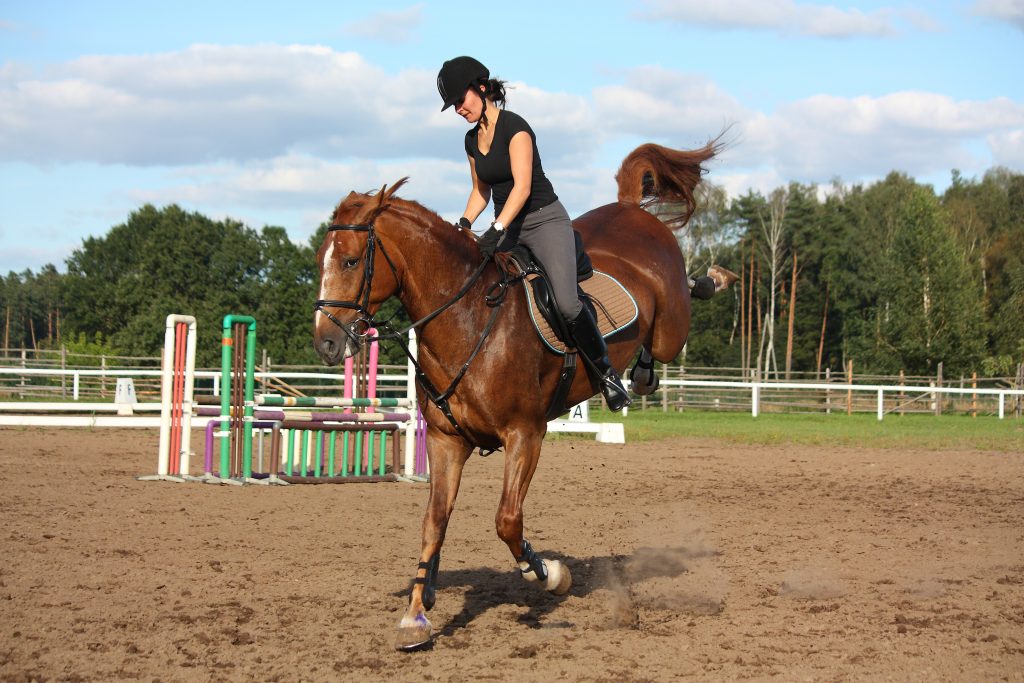We offer a full Out of Hours emergency service – our phones are open 24/7 so call us anytime on 01420 551 365
our practice
We provide top-quality equine care with a range of services.
Looking after your horse is our mission. To do so, we will use a variety of services to maintain the best levels of health and to diagnose and treat it when needed.


Emergency Care
We offer a full Out of Hours emergency service and will always prioritise your horse when and where they need us. Our phones are open 24/7 so call us anytime on 01420 551 365.

Emergency Care
We offer a full Out of Hours emergency service and will always prioritise your horse when and where they need us. Our phones are open 24/7 so call us anytime on 01420 551 365.

Pre-Purchase Examinations (Vettings)
Buying a horse can be a stressful business and you need to know that it is capable of fulfilling the role for which you need it. We will work with you, providing a thorough and honest assessment of any horse which you are considering purchasing.

Pre-Purchase Examinations (Vettings)
Buying a horse can be a stressful business and you need to know that it is capable of fulfilling the role for which you need it. We will work with you, providing a thorough and honest assessment of any horse which you are considering purchasing.

Lameness Investigations
Unfortunately, Lameness is a common issue that most horses experience at some point in their lives. While some causes, like a foot abscess, corn, or bruised sole, may be straightforward, others can stem from more complex conditions.
Lameness can arise from multiple areas of a horse’s body, including the legs, hooves, joints, muscles, tendons, and ligaments.
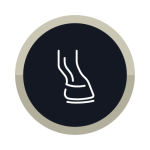
Lameness Investigations
Unfortunately, Lameness is a common issue that most horses experience at some point in their lives. While some causes, like a foot abscess, corn, or bruised sole, may be straightforward, others can stem from more complex conditions.
Lameness can arise from multiple areas of a horse’s body, including the legs, hooves, joints, muscles, tendons, and ligaments.

Sports Medicine
Sports medicine specialises in the diagnosis, treatment, management and prevention of illness and injury that limits performance.
We have invaluable experience gained in this field, working with some of the best vets, riders, farriers and, of course, horses. We aim to use this experience to the benefit of all our clients, whether they ride at Grand Prix, professional or amateur competition levels, or simply for pleasure.
The work we do can provide the extra 5% you need, and we believe every horse can and should have the benefit of our craft.
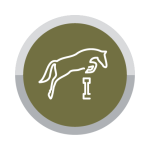
Sports Medicine
We have invaluable experience gained in this field, working with some of the best vets, riders, farriers and, of course, horses. We aim to use this experience to the benefit of all our clients, whether they ride at Grand Prix, professional or amateur competition levels, or simply for pleasure.
The work we do can provide the extra 5% you need, and we believe every horse can and should have the benefit of our craft.

Internal Medicine
Medical conditions in horses cover a broad spectrum, including Cushing’s, skin problems, infections, neurological issues, allergies or coughing. These can all affect your horse’s health and performance.
We use gastroscopies, ultrasound scanning and blood-work, combined with our know-how, to bring your horse back to their best possible condition.

Internal Medicine
Medical conditions in horses cover a broad spectrum, including Cushing’s, skin problems, infections, neurological issues, allergies or coughing. These can all affect your horse’s health and performance.
We use gastroscopies, ultrasound scanning and blood-work, combined with our know-how, to bring your horse back to their best possible condition.

Diagnostic imaging
Many orthopaedic and medical conditions require advanced imaging techniques to help us to accurately diagnose, treat and monitor. We are able to use a variety of imaging techniques conveniently at your yard.
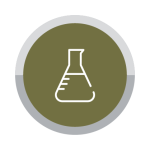
Diagnostic imaging
Many orthopaedic and medical conditions require advanced imaging techniques to help us to accurately diagnose, treat and monitor. We are able to use a variety of imaging techniques conveniently at your yard.

Gastroscopy/Gastric ulcers
Equine Gastric Ulcer Syndrome is a wide-reaching disease in horses – have you noticed a drop in condition of your horse? Or an apparent soreness in the back or resentfulness during tacking up? These could be common signs of the disease. We specialise in diagnosing and treating horses suffering from this debilitating illness.
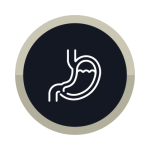
Gastroscopy/Gastric ulcers
Equine Gastric Ulcer Syndrome is a wide-reaching disease in horses – have you noticed a drop in condition of your horse? Or an apparent soreness in the back or resentfulness during tacking up? These could be common signs of the disease. We specialise in diagnosing and treating horses suffering from this debilitating illness.

Colic
Colic is the most common equine emergency and a leading cause of death in horses. Ranging from mild to life-threatening, it arises from various causes. Given the complexity of the equine digestive system, prompt recognition, diagnosis, and treatment are crucial to avoid serious complications.
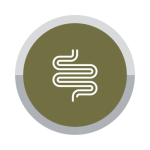
Colic
Colic is the most common equine emergency and a leading cause of death in horses. Ranging from mild to life-threatening, it arises from various causes. Given the complexity of the equine digestive system, prompt recognition, diagnosis, and treatment are crucial to avoid serious complications.

Dentistry
This is an essential aspect of horse health and well-being, ensuring that your horse’s teeth are properly maintained for effective chewing, digestion, and overall comfort. We offer a range of dental care services.
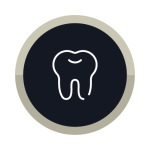
Dentistry
This is an essential aspect of horse health and well-being, ensuring that your horse’s teeth are properly maintained for effective chewing, digestion, and overall comfort. We offer a range of dental care services.

Regenerative therapies
Stem cell therapy, Platelet-Rich Plasma (PRP), and ‘IRAP’ Therapies all utilize the horse’s own healing mechanisms to cure injuries and disease. They are at the cutting edge of modern medical science.

Regenerative therapies
Stem cell therapy, Platelet-Rich Plasma (PRP), and ‘IRAP’ Therapies all utilize the horse’s own healing mechanisms to cure injuries and disease. They are at the cutting edge of modern medical science.

Routine Care
All horses need ongoing maintenance, and preventative, regular routine healthcare is an important part of our service. Sometimes these routine services help identify a potential problem developing; early treatment is always better than emergency action later.

Routine Care
All horses need ongoing maintenance, and preventative, regular routine healthcare is an important part of our service. Sometimes these routine services help identify a potential problem developing; early treatment is always better than emergency action later.

